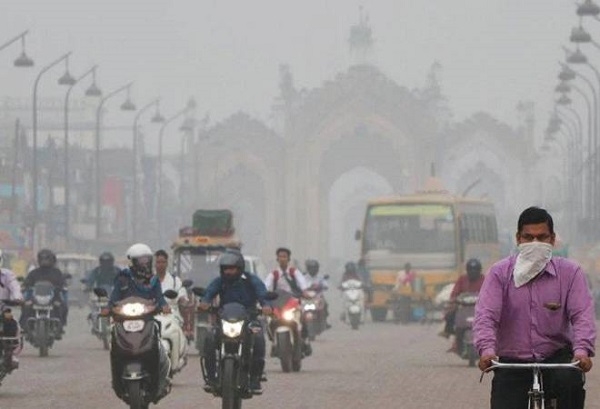Pollution levels dip slightly in Delhi
Total Views |
New Delhi, October 14: Even as pollution levels dipped slightly, the national capital's air quality was recorded in the poor category on Wednesday. According to the Ministry of Earth Sciences' Air Quality Early Warning System for Delhi, the air quality is likely to improve to the moderate category by Thursday.
The city recorded an air quality index (AQI) of 274, the 24-hour average AQI was 300 on Tuesday. With Delhi-NCR bracing for months of poor air quality, the authorities have warned that high levels of air pollution can aggravate the COVID-19 pandemic. Severe air pollution in Delhi is a year-round problem, which can be attributed to unfavourable meteorological conditions, farm fires in neighbouring regions and local sources of pollution.

According to an analysis by the Council on Energy, Environment and Water, a Delhi-based think tank, transportation contributes the most, 18 to 39 percent, to Delhi's air pollution. Road dust is the second largest source of air pollution in the city (18 to 38 per cent), followed by industries (2 to 29 per cent), thermal power plants (3 to 11 per cent) and construction (8 per cent).
This year, the Delhi government has launched a massive anti-air pollution campaign -- Yuddh Pradushan Ke Viruddh' -- which is being led by Chief Minister Arvind Kejriwal and Environment Minister Gopal Rai. A green war room with a 10-member expert team has been set up at the Delhi Secretariat to monitor the steps being taken to deal with high levels of air pollution in winters. The environment department has also taken stern action against project proponents at large construction and demolition sites flouting dust control norms.
Starting Thursday, stricter measures to fight air pollution will also come into force in Delhi and its neighbourhood as part of the Graded Response Action Plan, which was first implemented in Delhi-NCR in 2017. The measures under GRAP include increasing bus and metro services, hiking parking fees and stopping use of diesel generator sets when the air quality turns poor.
When the situation turns "severe", GRAP recommends closure of brick kilns, stone crushers and hot mix plants, sprinkling of water, frequent mechanised cleaning of roads and maximising power generation from natural gas. The measures to be followed in the "emergency" situation include stopping entry of trucks in Delhi, ban on construction activities and introduction of the odd-even car rationing scheme.

